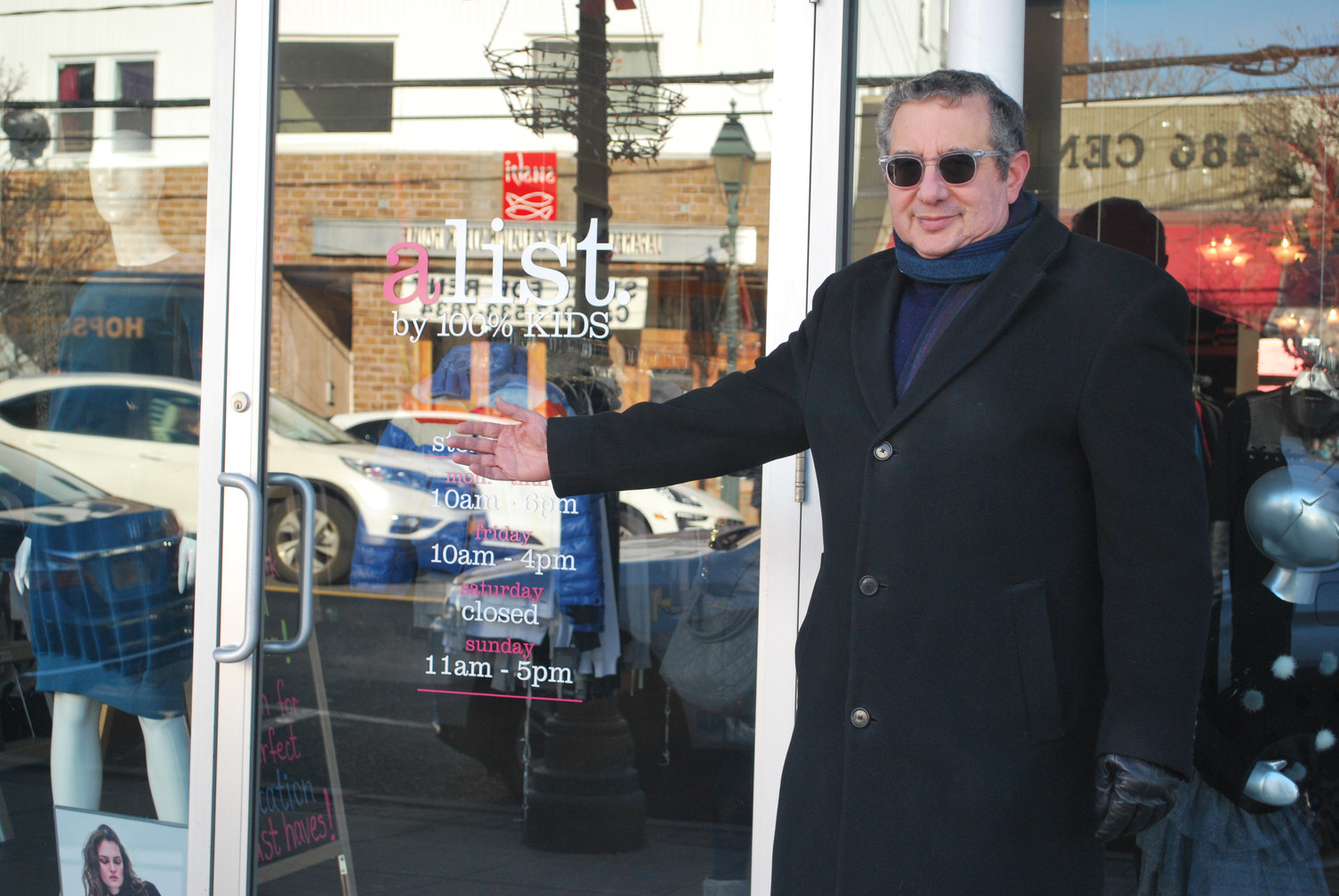Revving up an economic engine
Business Improvement District keeps Cedarhurst humming
Lifelong Five Towns resident Steve Schneider has served as chairman of the Cedarhurst Business Improvement District for nearly 22 years, and has helped to ensure that the village’s downtown area, where his family’s real estate company owns property, remains a viable economic hub.
Schneider, 65, of Woodmere, a lawyer who attended Harvard Law School and earned a Ph.D. from the University of California at Berkeley in sociology, grew up in Cedarhurst and Woodmere. He was part of a group of business people who formed the BID in 1993, after two previous organizations — the Cedarhurst Commercial Property Owners Association and the Cedarhurst Business Association — were not as successful at attracting businesses to the village and creating strong relationships between landlords and business owners.
“The Cedarhurst Commercial Property Owners Association was an ad hoc group formed during the worst time in 1990 — there were a lot of vacant stores, and business wasn’t good,” Schneider said. “The group didn’t do much. They tried to improve things. The first project was having high schools decorate the storefronts.” Though the students’ work was aesthetically pleasing, landlords preferred showing an empty store, Schneider said.
Roger Fisher, a resident who owned property in New York City, introduced the idea of a BID, Schneider said. “At first, I was skeptical — landlords won’t pay an additional tax,” Schneider recalled, “but things got better after that, and really, now they’re as good as they have been since the BID was formed.”
A BID collects an assessment of the village tax on commercial property. The maximum allowed by law is 20 percent. In conjunction with a governing body such as a village, the BID uses the money for improvements and promotions in the business area. The Cedarhurst BID raises $80,000 annually, Schneider said.
In 1998, the business vacancy rate was 12 percent. A decade later it had dropped to 6.5 percent. After the economic downturn that began in 2008, the rate rose to 9.89 percent, but it declined to a low of 3.9 percent in June 2014, according to figures from the village. As of last June, it was 4 percent, Cedarhurst officials said. There are 283 storefronts in the village.
“There is a tight bond between the BID and the village,” said Cedarhurst Trustee Ari Brown, who owns a construction company. Brown served as the BID’s representative to the village for about four years, then the board’s liaison to the BID after becoming a trustee in 2001. “Steve listens to opinions, has good thoughts and works very well with the executive director.”
Teri Schure, a North Woodmere resident, is the BID’s executive director. She coordinates events such as grand openings, the annual Summer Sidewalk Sale and the Black Friday/Midnight Madness sales on Thanksgiving weekend.
The summer sale, which is heading into its 30th year, attracts shoppers not only from the Five Towns and surrounding communities — including, East Rockaway, Far Rockaway, Lynbrook, Long Beach, Oceanside and Rockville Centre — but also from Brooklyn, Queens, Westchester, Connecticut and New Jersey, Schure said. And more than 4,000 people strolled the streets during the recent Midnight Madness.
“We will keep doing these events,” Schneider said. “If we could come up with others, we’ll do that.”
In years past, he added, the BID did mass mailings in an effort to attract chain stores to the village, but those efforts were not successful. The business district appears to draw more of what he called “mom-and-pop” stores with individual owners, and Cedarhurst has carved out a niche as an area that caters to Orthodox Jews. “The retail tenant base in this area for that population is as strong an area as there is,” Schneider said. “This is the best place for that demographic, as some competitors are far away.”
A member since the BID’s inception nearly 25 years ago, Jeff Beja, who owns Central Galleries, on Spruce Street, said that the group encourages business owners to keep their storefronts up to date and landlords to maintain their properties.
“[The BID] has a very good relationship with the village, working cooperatively on events and promotions” said Beja, whose has owned the art gallery and framing business for 32 years. “I’m hoping for good, steady and stable growth. We hope that the new stores that opened in the last year or two thrive, and help attract other high-end merchants.”

 50.0°,
Overcast
50.0°,
Overcast 




